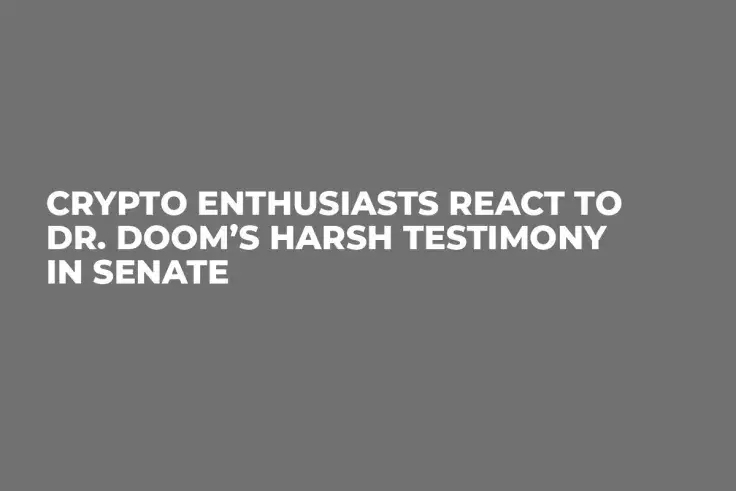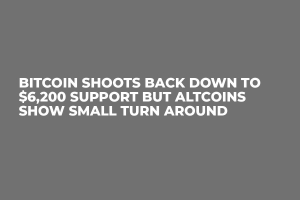
On Thursday, Oct. 11, there took place a hearing in U.S. Senate Committee on Banking, Housing and Urban Affair, where Dr. Nouriel Roubini, professor of economics at New York University, and Peter Van Valkenburgh, Director of Research at Coin Center, gave testimonies on their stances on cryptocurrencies and Blockchain.
Peter Van Valkenburgh’s speech stood in contrast to the fiery testimony from Roubini.
“Bitcoin is the world’s first globally accessible public money. Is it perfect? No. Neither was email when it was invented in 1972. Bitcoin’s not the best money on every margin. It’s not yet accepted everywhere. It’s not used often to quote prices and it’s not a stable store of value. But it is working, and the fact that it works without intermediaries is amazing,” he said.
Advertisement
Opinions from crypto experts
After the hearing, various cryptocurrency and Blockchain experts offered their opinions on the economist’s statement.
“Bitcoin and Ethereum are very much viable means of payment, and their “stored value” characteristics are not disputed by market participants or regulators. Any deficiency to date with respect to scalability or absolute decentralization can and will be improved over time. CoinCenter’s viewpoints are more nuanced and balanced, but that’s not what gets the attention these days,” said Ken Nguyen, CEO of Republic, the AngelList & NEO Global Capital, in response to Roubini’s claim that Bitcoin can’t scale and is not decentralized.
Marshall Hayner, Founder and CEO of Metal, said that the economist’s statistics were mostly taken out of context. “His comments on prices dropping 80% instills an unnecessary fear in individuals looking to enter the crypto fray, and raises alarms unjustly for those newly invested in the ecosystem. Those of us who have been attuned to the maturation of the industry understand that dips in the market are temporary — and certainly do not negate the lasting disruptive nature of cryptocurrencies as a whole,” he said.
“Dr. Roubini’s comments today, specifically that there is no potential for institutional integration of Blockchain technology, are completely unjustified. This year we’ve seen exploding interest from legacy financial institutions to find ways to work with, not against, adoption of Blockchain’s immutable ledger,” said Mick Hagen, CEO of Mainframe.
Zach Warsavage, North American Strategist of Elastos, said, corresponding to Valkenburgh’s stance during the hearing, that “one thing people frequently fail to realize is that all transactions are tracked and recorded on a public ledger — the last thing criminals want.” Valkenburgh said that law enforcement officials enjoy doing Blockchain investigation because it is possible to track criminal activities.
“Congress needs some serious education on this new technology, and fast, before other countries take the lead on an industry that will not only make the vast majority of our processes and industries more efficient, but will also create jobs, grow the economy, and become a global mechanism of trust. It is time for the United States to lead on Blockchain — not fear it,” Warsavage concluded.

 Arman Shirinyan
Arman Shirinyan Dan Burgin
Dan Burgin Alex Dovbnya
Alex Dovbnya